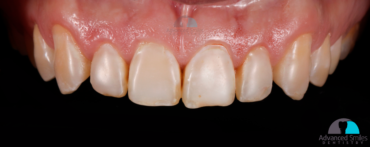[et_pb_section fb_built=”1″ _builder_version=”4.16″ _module_preset=”default” global_colors_info=”{}”][et_pb_row _builder_version=”4.16″ _module_preset=”default” global_colors_info=”{}”][et_pb_column type=”4_4″ _builder_version=”4.16″ _module_preset=”default” global_colors_info=”{}”][et_pb_text _builder_version=”4.16″ _module_preset=”default” global_colors_info=”{}”]
Advanced Smiles Dentistry can offer you the best dental treatment to enhance your smile.
Which dental procedure is the best for you?
We know that when it comes to cosmetic dentistry and knowing the best option for you, there can be tons of questions. So, the best cosmetic dentists in Tijuana came together to explained the most common doubts about composite veneers and porcelain veneers.
What are Composite Veneers?
A composite veneer is tooth-colored resin that is bonded directly to your teeth (the same type of material used to do fillings).
How are composite veneers done?
Since the dentist doesn’t need to shave down your natural teeth for this dental treatment. Composite veneers are considered as a non-invasive dentistry procedure. The white resin is applied straight to the enamel layer of the teeth to reshape them and/or change the color.
When is recommended to use composite veneers?
The dentists in Advanced Smiles Dentistry might suggest this procedure for subtle changes like: teeth with chipped edges; or to close small gaps between your teeth.
You will require one or two appointments to get the final dental results.
What is the lifespan of composite veneers?
While composite veneers are more affordable, they will generally only last between 1 to 3 years. After this time, they are far more prone to chipping and staining, why so we advise to replace them.
Can I whiten my composite veneers or porcelain veneers?
A dental whitening over either composite or porcelain veneers is not possible. That is why is really important that patient and dentist can settle in the color shade before any treatment starts.
Can you floss with composite veneers and porcelain veneers?
Yes, you can floss with composite or porcelain veneers. Both types of veneers are made individually to promote good hygiene and overall oral health.
What are the composite temporary veneers?
Temporary composite veneers are usually used after preparing your teeth for porcelain veneers. You will have a set of temporary composite veneers placed while the dental lab is making your permanent porcelain veneers.
How to clean composite or porcelain veneers?
The oral care is the same dental routine as you do with your natural teeth. Brushing and flossing daily, plus regular visits to the dentist for dental cleaning and checkup.
Porcelain veneers what are they and how are porcelain veneers done?
Cosmetic procedure that consists in removing 0.3 to 1mm, depending on each case, of the teeth surface to make space for the ceramic. Afterwards the dental assistant takes an impression and send it to the dental lab; which usually needs 10 to 15 days to customize a set of porcelain veneers. A temporary set of veneers is placed in the meantime.
The procedure usually requires 3 or 4 appointments to get it finished.
Are porcelain veneers permanent?
Even though the durability of the porcelain veneers is significantly larger than the composite veneers they are not forever. They can last between 10-15 years if you take care of them properly with regular visits to your dentist and professional cleanings.
Cost-benefit with porcelain veneers?
The average cost of porcelain veneers is higher than the composite veneers. However, the cost benefit is better considering that composite veneers life spend is 1-3 years and porcelain veneers can last a decade or more.
Do porcelain veneers stain?
If sealed correctly porcelain veneers are not likely to stained. Ceramic materials mimic the enamel of your teeth so they tend to have some degree of discoloration. Discoloration can happen in less time after prolonged periods of exposure to pigmented beverages or food and smoking.
Am I a candidate for porcelain veneers?
Even though a cosmetic evaluation is needed, a wider range of cosmetic problems can be solved with porcelain veneers in comparison to composite veneers, like minimal or severe discolored teeth, malformed teeth, enamel hypoplasia (not enough enamel), enamel hypocalcification (enamel not fully mineralized), fluorosis, non-vital tooth discoloration, malposition, enamel fractures and erosion, etc.
[/et_pb_text][/et_pb_column][/et_pb_row][/et_pb_section]




